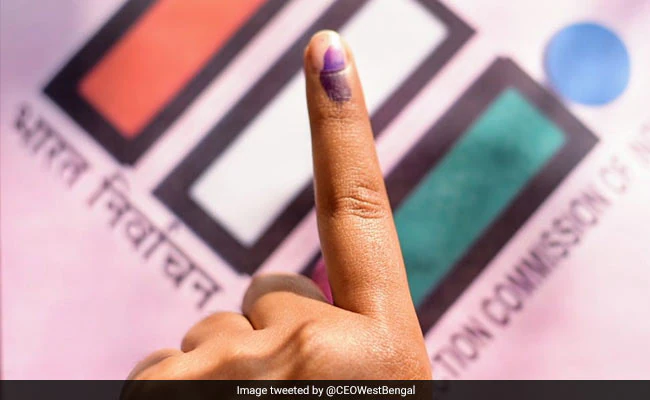The concept of “One Nation, One Election” has been at the center of political discourse in India, with the ruling Bharatiya Janata Party (BJP) advocating for its implementation. This ambitious proposal suggests synchronizing the Lok Sabha (Parliamentary) and state assembly elections to be held simultaneously. While this idea aims to streamline the electoral process and reduce the continuous cycle of elections, it has sparked widespread debate and concerns about its feasibility, impact, and implications for India’s democratic system.
The BJP’s Perspective
The BJP, India’s largest political party, has been a vocal proponent of the One Nation, One Election (ONOE) concept. They argue that it could bring several benefits to India’s democratic framework, such as reduced election-related expenses, enhanced governance, and an end to the policy paralysis that often accompanies frequent elections. The party believes that ONOE could lead to a more focused and efficient administration, allowing elected representatives to dedicate more time to policymaking and development.
Key Arguments in Favor of One Nation, One Election
1. Reduced Expenditure: Frequent elections are expensive affairs, and the financial burden on both the government and political parties is immense. By synchronizing elections, the cost of organizing elections would be significantly reduced.
2. Enhanced Governance: Continuous electoral cycles often disrupt the governance process. ONOE proponents argue that by conducting elections together, governments can focus on governance for a more extended period without the interruption of election campaigns.
3. Policy Continuity: Frequent elections can lead to a lack of policy continuity, as incoming governments often reverse or modify the policies of their predecessors. ONOE could potentially provide governments with a more extended period to implement their policies.
4. Reduced Polarization: Frequent elections can exacerbate political polarization, as political parties continuously engage in electoral battles. Synchronizing elections might reduce the perpetual election mode, allowing parties to concentrate on governance and dialogue.
5. Increased Voter Turnout: Some proponents argue that simultaneous elections could lead to higher voter turnout, as voters may be more inclined to participate in a single, important election event.
Challenges and Concerns
While the concept of One Nation, One Election has its merits, it also faces several challenges and concerns:
1. Constitutional Complexity: India’s federal structure and diverse political landscape make simultaneous elections a constitutional challenge. States have their distinct political dynamics, and their assembly terms vary. Coordinating these complexities could be a Herculean task.
2. Erosion of Federalism: Critics argue that ONOE could erode the principles of federalism by concentrating power in the hands of the central government. They believe that states should have the flexibility to call elections based on their unique circumstances.
3. Loss of Accountability: Frequent elections hold politicians accountable to the electorate. Simultaneous elections might reduce the frequency of this accountability check, allowing governments to continue without scrutiny for an extended period.
4. Feasibility: Implementing ONOE would require extensive legal and logistical changes. It would also necessitate a constitutional amendment, which is a complex and time-consuming process.
5. Practical Challenges: India’s vast size and diverse population pose practical challenges to conducting simultaneous elections. The logistics involved in managing such a massive electoral exercise are immense.
6. Uneven Political Advantage: Critics argue that ONOE could disproportionately benefit the ruling party, as it might synchronize elections with states where it holds power. This could potentially create an unfair advantage.
The Need for Broader Consensus
The concept of One Nation, One Election is a significant reform proposal, and its implementation would have far-reaching consequences for India’s democracy. To ensure that this proposal is thoroughly vetted and represents the interests of all stakeholders, a broader political consensus is needed.
The BJP’s enthusiasm for ONOE has garnered attention, but for this proposal to become a reality, it must garner support from across the political spectrum. Opposition parties and regional parties have expressed reservations about the proposal, and their concerns must be addressed through dialogue and negotiation.
Alternatives and Compromises
While ONOE is a comprehensive proposal, there are alternative approaches and compromises that could be explored to address some of the concerns and challenges:
1. Staggered Elections: Instead of simultaneous elections for all states, a staggered approach could be considered, where elections for a group of states are synchronized, reducing the frequency of elections but still allowing some degree of regional flexibility.
2. Fixed Election Schedule: Implementing a fixed election schedule for state assemblies could provide predictability while preserving the autonomy of states to choose their election dates within that schedule.
3. Reforms to Election Expenditure: To reduce the financial burden of elections, reforms could be introduced to limit campaign spending by political parties and candidates.
4. Election Commission Reforms: Strengthening the Election Commission’s capacity and resources could potentially improve the efficiency of election management.
The concept of One Nation, One Election is a bold and ambitious proposal that seeks to reform India’s electoral process. While it carries the potential benefits of reduced expenditure and enhanced governance, it also faces significant challenges related to constitutional complexity, federalism, and practical feasibility.
To ensure that this proposal serves the best interests of Indian democracy, it is essential to engage in a comprehensive and inclusive dialogue involving all political parties, constitutional experts, and civil society. Alternatives and compromises should be explored, keeping in mind the principles of federalism, accountability, and fairness in the electoral process.
Ultimately, the success of any electoral reform should be measured by its ability to strengthen India’s democratic institutions and ensure that they continue to serve the diverse needs and aspirations of the nation.



